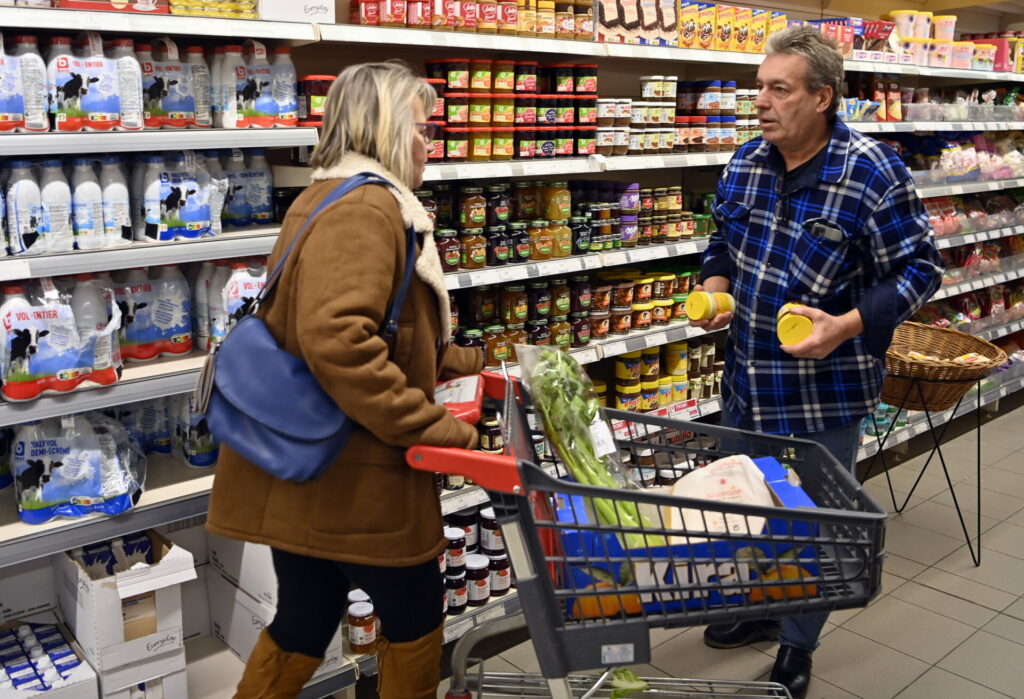Buying groceries has once again become more expensive, as figures are showing that prices in Belgian supermarkets are rising between 4% and 12%, new figures by research agency Daltix show.
Every supermarket chain in Belgium has increased its prices this quarter: prices at Albert Heijn are now 7.8% higher than in the same quarter last year, Aldi is 11.1% more expensive, and Carrefour Hypermarket went up 11.9%. At Colruyt and Delhaize the increases are slightly lower, with 4.3% and 6%, respectively.
"The war in Ukraine is making raw materials more expensive, as are transportation costs due to rising energy prices," Nikolina Pipping, Daltix's head of marketing, said in a press release. "Therefore, manufacturers and suppliers have to raise their prices for supermarkets, who then pass this on to the customers."
Impact on entire supply chain
This price increase had been a long time coming, according to Pierre-Alexandre Billiet, CEO of retail magazine 'Gondola' and professor at Solvay Business School.
"The reason why it was not yet visible to consumers is because of the competitive landscape in Belgium. Supermarkets were afraid to be the first to raise their prices because they would lose customers," he told Het Laatste Nieuws.
"But meanwhile, supplier prices have become so high that supermarkets are obliged to raise prices for consumers. Otherwise, suppliers would not continue to supply – at Colruyt, for example, Lotus biscuits were not available for a while – or supermarkets simply no longer make a profit."
The entire chain has been affected by irregularities, and supermarkets can only go so far in dealing with that before it affects their day-to-day activities. "What we nowadays pay too little attention to is that supermarkets bring stability to our food system. People can eat three times a day, while we used to depend on the harvest. If it was bad, it sometimes even resulted in famine."
Related News
- Inflation rate decreased slightly since June, food and energy prices remain high
- World could be on brink of recession, new IMF report shows
- Shopping across the border puts 15,000 Belgian jobs at risk
"Today, that system has stabilised, but it can hardly handle fluctuations, such as the increase in raw materials, the war in Ukraine and more frequent droughts due to climate change."
The fact that prices rose less than 5% in some chains and nearly 12% in others has to do with the supermarkets' internal organisation, such as outsourcing of logistics, for example.
"In general, prices are rising equally at all supermarkets," said Billiet. "At Carrefour, this is most visible in the last quarter, because the chain has taken the most blows in the past year. The logistics are outsourced, making Carrefour more dependent on other parties. There are also certain supermarkets that have increased their prices very little in recent years, but are now catching up."
According to Billiet, prices will rise even further if all the negative effects of the food sector have to be compensated. "All food would have to double in price. A price increase of 100% is still possible: in that case, 12% is just a start."
Rising prices for raw materials
Aldi, known for its generally low prices, is among the strongest risers, but emphasised that it only raises its prices for the customer when it really has to. “It is true that we are forced to increase the price for certain products," Aldi spokesperson Jason Sevestre told De Tijd.
"Our producers are currently confronted with rising prices for their raw materials, but also energy, transport and labour costs. This ultimately leads to an increase in our purchase prices," he said. "As a result of the conflict in Ukraine, grain products, in particular, became more expensive, but also think of oil and mustard due to a bad harvest in the south of France."
While Sevestre said that it was impossible to predict the future in "these dynamic times," he stressed that Aldi applies the same principle for every price and for every item: "We only increase the prices for the customer when necessary and lower them as soon as possible."

